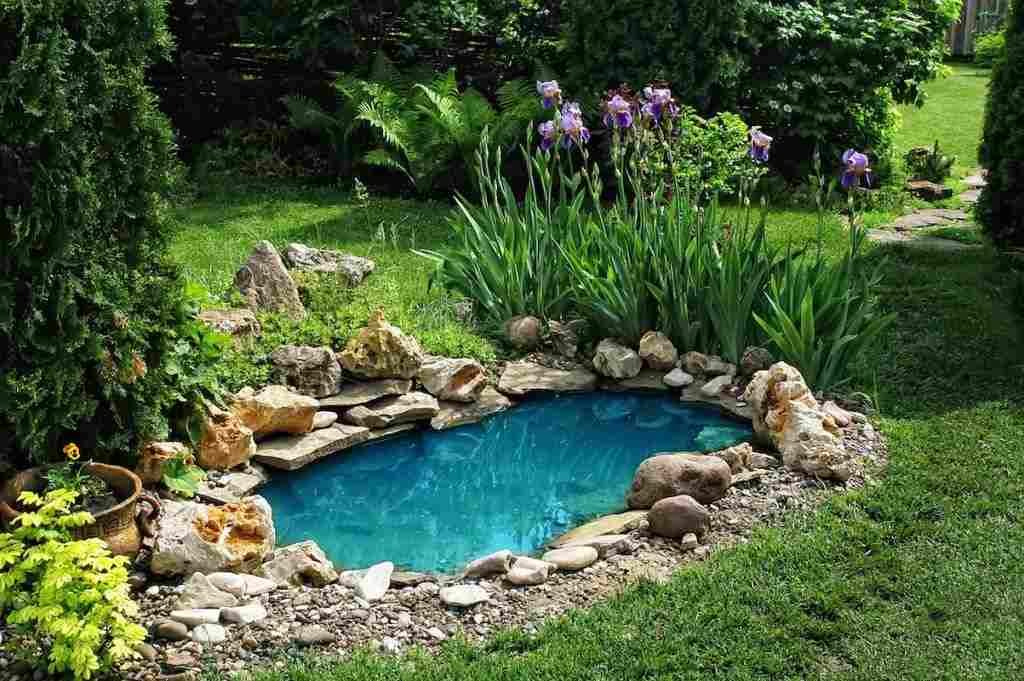Maintaining a healthy pond in Delaware requires regular cleaning to ensure optimal water quality and a thriving ecosystem. The frequency of cleaning depends on various factors such as the size of the pond, the presence of aquatic plants, and the level of organic debris accumulation. In general, smaller ponds may need more frequent cleaning compared to larger ones. By understanding these factors and adopting appropriate maintenance practices, First State Ponds and fountains in Delaware can help you to create a balanced and visually appealing aquatic environment while supporting the wellbeing of flora and fauna.
Seasonal Cleaning
Seasonal cleaning is an essential aspect of maintaining a healthy and vibrant pond in Delaware. Each spring, before the growing season kicks into full gear, it’s recommended to conduct a thorough cleaning of the pond. Finally, check the pond’s bottom for sediment buildup. Over time, organic matter and sediment can accumulate, leading to murky water and potential nutrient imbalances.
Use a pond vacuum or siphon to remove sediment from the bottom of the pond, being careful not to disturb any aquatic plants or fish. By performing these seasonal cleaning tasks, you can start the growing season with a clean slate, promoting healthy water quality and a thriving pond ecosystem.
Regular Maintenance
In addition to seasonal cleaning, regular maintenance is key to keeping your pond in top condition throughout the year. Regular maintenance tasks help prevent problems before they arise and ensure that the pond remains a beautiful and enjoyable feature of your landscape. Trimming and maintaining aquatic plants is another essential aspect of regular pond maintenance.
Overgrown plants can obstruct water flow, contribute to nutrient imbalances, and create hiding places for debris and algae. Prune plants as needed to promote healthy growth and prevent overcrowding. By incorporating these regular maintenance tasks into your routine, you can enjoy a clean, balanced, and thriving pond year-round.
Water Testing
Water testing is a fundamental aspect of pond maintenance that helps ensure optimal water quality for fish, plants, and other aquatic life. Regular water testing allows you to monitor key parameters and make adjustments as needed to create a healthy and balanced pond ecosystem.
Keep detailed records of water test results over time to track trends and identify any potential issues before they become major problems. Consult with a pond specialist or local extension service for guidance on interpreting test results and making appropriate adjustments to maintain optimal water quality.
By regularly testing and monitoring water quality, you can create a healthy and balanced pond environment that supports thriving aquatic life.

Fish Considerations
If your pond in Delaware is home to fish, proper care and consideration for their needs are essential for their health and well-being. Fish add beauty and life to the pond but also require specific conditions to thrive.
Maintain good water quality by following the recommendations for seasonal cleaning, regular maintenance, and water testing outlined earlier. Clean water with proper filtration, oxygenation, and balanced nutrient levels is essential for fish health.
By considering these fish care guidelines and providing a healthy and well-maintained environment, you can enjoy a thriving and vibrant pond ecosystem in Delaware.
Weather Impact
Weather can have a significant impact on pond water quality and ecosystem health. Delaware experiences a range of weather conditions throughout the year, from hot summers to cold winters, which can affect ponds in various ways. High temperatures during the summer months can cause water temperatures to rise, potentially leading to decreased oxygen levels and stress on fish and other aquatic life.
In winter, cold temperatures can cause water to freeze, which may be problematic for fish and plants. Install a pond de-icer or aerator to prevent ice formation and maintain an opening for gas exchange and oxygenation. By considering the weather’s impact on your pond and taking proactive measures to mitigate potential problems, you can maintain a healthy and balanced ecosystem year-round.
Landscaping Benefits
Proper landscaping around the pond can enhance its aesthetic appeal, improve water quality, and provide habitat for wildlife. Strategic landscaping choices can contribute to a harmonious and balanced pond ecosystem in Delaware.
Regularly maintain landscaping elements by pruning, mulching, and removing debris to keep the area around the pond tidy and healthy. Consider incorporating seating areas or viewing platforms to enjoy the pond and its surroundings.
By integrating thoughtful landscaping practices into your pond design, you can enhance its beauty, functionality, and ecological value while creating a welcoming habitat for wildlife.
Pond Fountain Maintenance
A pond fountain not only adds beauty to your pond but also helps aerate the water, improve circulation, and oxygenate the aquatic environment. Proper maintenance of the pond fountain ensures its functionality and longevity.
Clean the fountain nozzle and adjust its position as needed to achieve the desired water spray pattern and height. Periodically remove algae or mineral deposits from the nozzle to maintain optimal water flow.
By performing routine maintenance and winterizing the fountain when necessary, you can enjoy a beautiful and functional water feature in your pond throughout the year.
Algae Control Methods
Algae growth is a common concern in ponds and can affect water clarity, oxygen levels, and overall ecosystem balance. Implementing effective algae control methods helps manage algae growth and maintain a healthy pond environment.
Regular water testing and monitoring can help detect early signs of algae growth and guide the selection of appropriate control methods. Combining multiple algae control strategies based on the specific needs of your pond can result in effective and sustainable algae management.
Fish Health Monitoring
Monitoring fish health is an important aspect of pond maintenance, as healthy fish contribute to a balanced ecosystem and enhance the pond’s overall vitality. Regular observations and proactive measures can help prevent disease outbreaks and maintain optimal fish conditions.
Observe fish behavior regularly, looking for signs of stress, illness, or abnormal activity. Common indicators of fish health issues include lethargy, loss of appetite, erratic swimming patterns, or visible signs of disease such as lesions or discoloration.
Consult with a fish health specialist or veterinarian if you notice any concerning changes in fish behavior or health. Prompt diagnosis and treatment can help prevent further complications and maintain a healthy fish population in your pond.
Seasonal Water Quality Management
Seasonal changes can affect pond water quality, requiring adjustments and management practices to maintain optimal conditions for aquatic life. Implementing seasonal water quality management strategies helps address specific challenges and promote a healthy pond ecosystem year-round.
During the spring and summer months, increased sunlight and nutrient availability can lead to algae blooms and reduced water clarity. Implement shading techniques using
Monitor water temperature closely during hot weather, as elevated temperatures can reduce oxygen levels and stress fish and other aquatic life. Provide additional aeration and circulation as needed to maintain adequate oxygenation throughout the pond.

Beneficial Plants for Pond Health
Aquatic plants play a crucial role in maintaining a healthy and balanced pond ecosystem by providing oxygen, absorbing nutrients, filtering water, and offering habitat for wildlife. Incorporating beneficial plants into your pond design can enhance water quality and promote a thriving ecosystem.
Regularly maintain aquatic plants by pruning, thinning, and removing dead or overgrown foliage to prevent overcrowding and promote healthy growth. Monitor plant health and address any issues such as nutrient deficiencies or pests promptly.
By incorporating beneficial plants into your pond design and maintaining them properly, you can enhance water quality, create habitat diversity, and support a thriving aquatic ecosystem.
Wildlife Habitat Creation
Ponds in Delaware can serve as valuable wildlife habitats, attracting a variety of birds, amphibians, insects, and other wildlife species. Creating a welcoming environment for wildlife enhances the ecological value of the pond and adds to its natural beauty.
Create habitat diversity by incorporating features such as log piles, rock piles, and brush piles around the pond. These habitat elements offer hiding places, foraging opportunities, and refuge for small mammals, reptiles, and amphibians.
By creating a wildlife-friendly habitat around your pond and fostering a harmonious relationship with local wildlife, you can enrich the pond’s biodiversity and ecological resilience.
Conclusion:
Regular cleaning and maintenance are essential for keeping a pond healthy and vibrant in Delaware. By adhering to a suitable cleaning schedule based on factors like pond size, vegetation, and environmental conditions, pond owners can prevent water quality issues, algae blooms, and habitat degradation. Additionally, proper cleaning practices contribute to the overall aesthetics of the pond and promote a harmonious ecosystem for aquatic plants and wildlife. Ultimately, a well-maintained pond not only enhances the visual appeal of its surroundings but also supports the ecological integrity of Delaware’s diverse aquatic habitats.
